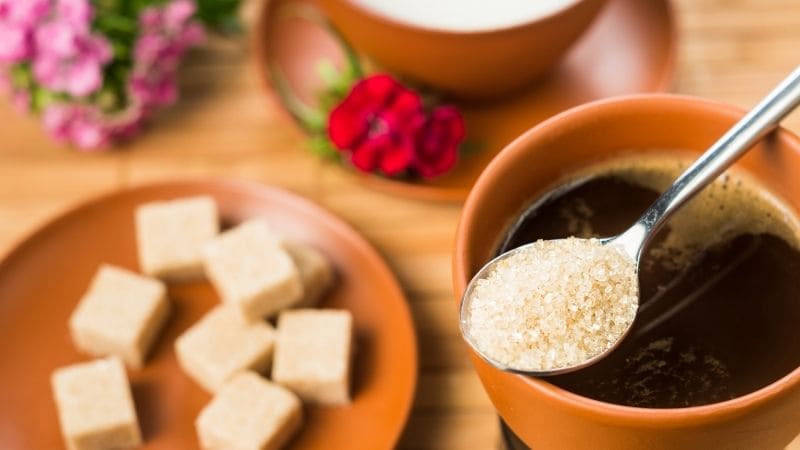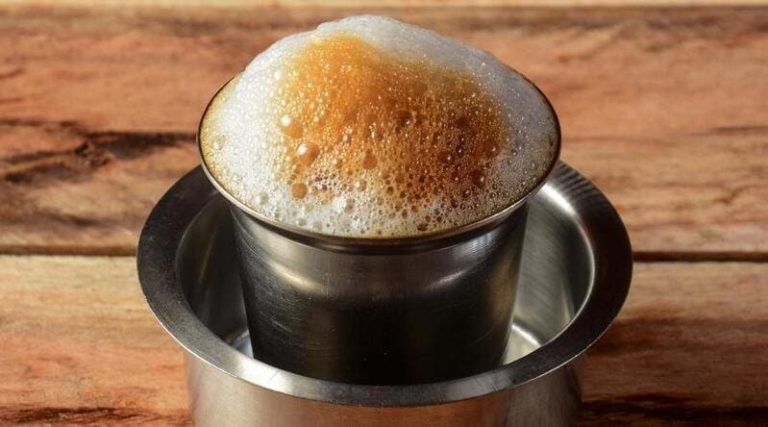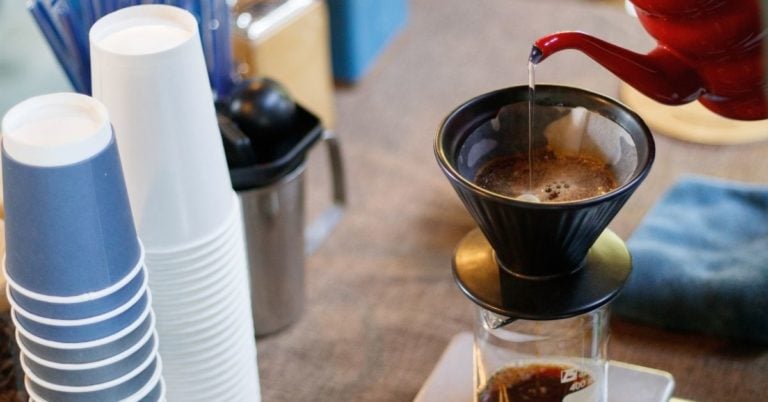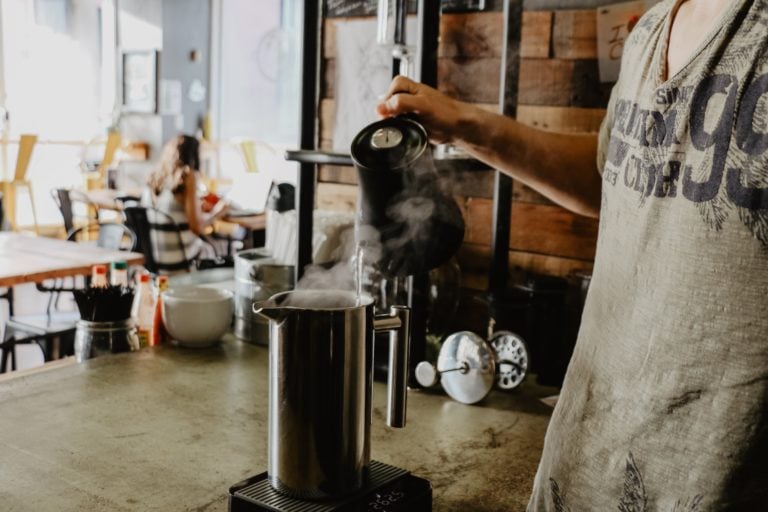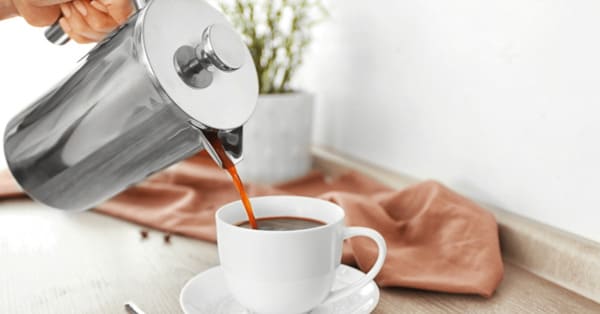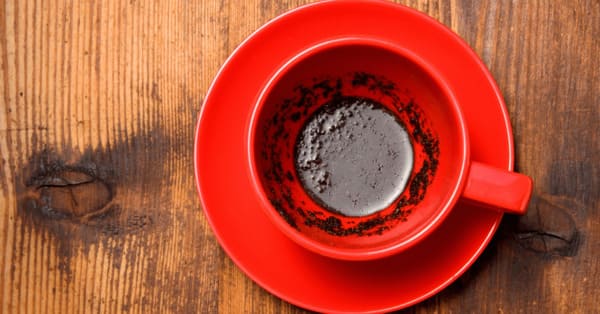How do you take your coffee? Do you like it black, or do you add milk or creamer to it? Maybe you load it down with sugar. Have you ever wondered how sugar affects your cup of joe? You might be surprised by the answer.
Does black coffee have sugar?
That depends on each culture, in many regions such as the united states, black coffee refers to the traditional brew without added sugar, syrup, or any other sweetener. In other regions, however, black coffee simply means coffee without milk or creamer, but can definitely be sugared.
And while that’s the general consensus, there’s quite a popular debate on this topic since many coffee fans are strongly opinionated when it comes to coffee flavor and how it should be named.
On the one hand, most believe that sugar is a default component, regardless of how coffee should taste, after all, the color will still be black. Right? Well, others will not only disagree but will also be adamant about keeping the tradition alive, because anything added to coffee will stir its taste away from the authentic flavor, and is therefore definitely not a component of the original drink.
Does Adding Sugar to Coffee Reduce Caffeine?
No, but it will reduce the effectiveness of the caffeine because your body has to break down the sugar before the caffeine can be absorbed. The total amount of caffeine remains the same, however. It’s only the caffeine’s effects that are reduced.
This explains why your sugared-up cup of joe packs a wimpier punch than a cup of black coffee would.
Plus, if you’re anything like me and prefer your morning cuppa with an extra kick without sacrificing the flavor, you might also want to aim for more effective ways like these to preserve as much caffeine within your coffee as possible.
Now, should you quit putting sugar in your coffee altogether? Or is there an optimal balance that won’t leave you groggy ‘til you’ve finished that third cup?
Does sugar reduce acidity in coffee?
Yes, sugar reduces the acidity of coffee a bit, but it is not nearly as effective as other additives. Commercially available acid reducers can be added if you tend to get bad heartburn, and a pinch of salt or baking soda can be used for a DIY cup of low-acid coffee.
Do coffee grounds have sugar?
No, most of the natural sugars in coffee seeds are chemically used up during the washing and roasting processes, so the final product will contain little to no sugar content.
That said, adding sugar doesn’t just sweeten your coffee. As a matter of fact, studies have shown that it interacts with caffeine on a chemical level, changing the way caffeine is absorbed by the body. Sugar, water, and caffeine also interact to block out some of the bitter flavors.
Do flavored coffee grounds have sugar?
No, most coffee grounds are flavored using natural or synthetic flavoring agents that are sugar-free. That said, it doesn’t hurt to always check the ingredients for added sugars.
In short, what makes your coffee sweeter is what you add to it. From creamer to syrup to various sweeteners, it’s easy to take your cuppa from sugar-free to sugar-packed.
Can You put Sugar in Coffee Grounds?
Yes, if you want your coffee to come out pre-sweetened, try adding some sugar directly into your coffee grounds before brewing. As long as you add a little more coffee grounds and a bit of water to the mix.
This ensures that all the sugar is dissolved fully into your fresh pot of coffee. And would save time and the hassle of adding sugar to each cup as you pour them.
Besides sugar, you can also add several other things to your coffee grounds before brewing to improve your coffee’s flavor profile:
• Salt: Adding a pinch of salt to your coffee grounds is an old restaurant trick that helps to neutralize some of the bitterness. This can improve the flavor for some people, but others find the faintly salty taste a turn-off.
• Cocoa powder: Adding a teaspoon or two of cocoa powder can add a rich flavor that the chocolate lover in everyone will enjoy. Try this on a cold winter day when you’re groggily waking up to a fresh snowfall.
• Spices: There are plenty of spices that blend well with coffee. Try adding cinnamon, nutmeg, allspice, pumpkin pie spice, or anything else you think might make a good combination directly to your coffee grounds.
Best natural sugar for coffee?
So, what’s the best natural way to add some sugar to your coffee? Surely there has to be a better way to sweeten your morning cup of joe without piling in lots of refined sugar. Luckily, you have a few options to sweeten your naturally, each with its benefits and drawbacks.
Here are some of the most popular natural ways to add sugar to your coffee:
• Coconut Sugar:
The sugar derived from coconuts has a low glycemic index, which is better for those at risk or suffering from type II diabetes. You’ll also get a faint hint of coconut added to your coffee.
• Honey:
Honey is a great natural sweetener. It has antioxidants that refined sugars do not have. Local honey can even help prevent or lessen the severity of allergies, so if you’re prone to the springtime sniffles, consider substituting the sugar in your coffee with a drizzle of honey.
• Agave:
Agave, like coconut sugar, has a low glycemic index, making it a great choice for those who want the advantages of a low glycemic sweetener but are turned off by the taste of coconut.
Best sugar substitute for coffee?
Sold under the brand name Truvia, Stevia is the best natural sugar substitute. It has zero calories and does not affect blood glucose levels. This makes it highly preferable for anyone trying to cut out sugar or reduce their sugar intake.
Stevia does a good job of reducing the bitter flavor of coffee, without any of the health problems that come with loading up on sugar.
How Much Sugar Should You Put in Coffee?
That depends largely on personal preferences, but many people put 1-2 teaspoons per 8 ounces cup of coffee. Moderating your sugar intake is good for your health in a variety of ways, so staying on the lower end of that range is best.
That said, the recommended limit for sugar intake is 9 teaspoons or 36 grams for men and 6 teaspoons or 24 grams for women. Exceeding this daily recommendation regularly can have negative effects that add up over time, leading to issues that can be difficult and expensive to manage if left unchecked.
So, how does that translate to those little packets of sugar at the gas station or in the break room?
How many Sugar packets to Put in Coffee?
They are standardized at 1 teaspoon per packet. So, for every spoonful, use one packet of sugar. As stated above, most people would use 1-2 packets per 8-10 ounce serving of coffee.
With that in mind, each sugar packet contains approximately 4 grams of sugar and has about 15 calories in it. whereas a cup of black coffee has no sugar and only about 5 calories.
So if you’re watching your calorie or sugar intake, cutting out a teaspoon or two of sugar can go a long way. This is a great, simple step you can take today to improve your long-term wellness.
Coffee and sugar effects to look out for:
Adding sugar to coffee can be concerning for your health in a variety of ways.
• Weight gain: Adding sugar to your coffee increases the caloric value of the beverage exponentially. A single packet of sugar represents a 300% increase in the calories of a cup of coffee.
• Diabetes risk: The added sugars, if not moderated, can contribute to the development of type II diabetes. To be fair, any source of excess sugar will, but coffee is a major source of added sugar for many people.
• Dental problems: Drinking sugared-up coffee is also bad for your dental health in a variety of ways. Most noticeably are the stains that coffee leaves on teeth. Exposure to sugar can lead to or exacerbate cavities. Plus, caffeine can cause dry mouth, which can cause or worsen dental problems by allowing acids to build up between brushings.
Final Thoughts
In moderation, adding sugar to your coffee can cut some of the acidity of your coffee, and negate some of the bitterness on a molecular level without much risk. However, too much sugar can lead to a variety of health problems.
As with most things in life, finding a reasonable balance is key. For some, that means cutting out sugar and substituting a healthier alternative.

